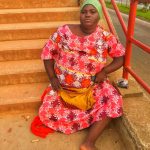Trauma Warning: This article contains content related to sexual violence, which could be distressing or traumatic for certain readers.
Solomon Idowu and John Dare Okafor were undergraduate students at the University of Ibadan in 2020. They met at a fellowship programme but continued to foster progressive interactions.
One of the constructive dialogues was a discussion on how the focus of both national and international interventions has concentrated on women and girls in the last decade, leaving male and boy children more than a mountain to climb.
They felt they had to act following how most public commentators were incriminating boy children after the eventual death of Uwaila Vera Omozuwa, the University of Benin undergraduate brutally assaultedinside the church of the Redeemed Christian Church of God, or RCCG, in Benin City and who passed away on May 30, 2020.
“Everyone was talking about the problems. Nobody was speaking about the solutions. They say men are the major perpetrators of these crimes; how then are we going to reach out to them to ensure that we reduce these numbers,” Solomon Idowu, the co-founder of Boys Without Borders,told Prime Progress.
Then we did something!
Idowu and Okafor hatched Boys Without Borders to provide boys with the necessary resources and support to grow into well-rounded and functional members of society.
Even though it started like a nursery, the NGO now has a national branch and a campus network at the University of Ibadan.
The organisation has consistently provided boys with the necessary education, support, and resources to overcome social issues and problems such as sexual abuse and inadequate orientation that the world has chosen to forget, reaching up to a thousand male children using its 65 student volunteers.
“We have reached more than 2,500 children in secondary schools majorly and interacted with over 500 guardians through our community outreaches, sensitising them on the need to become the best versions of themselves and become self-aware,” he says.
Boys Talk About It
Though one in every 20 boys under 18 experience sexual abuse or assault, they cannot speak out because of the stereotypes and single stories that only the opposite gender can be sexually abused.
But since 2020, when the organisation launched ‘Boys Talk About It’, many male children have spoken about how they have been abused, lessened the burden of the self-shame they face and got psychological support when necessary.
Idowu explains to Prime Progress that the initiative is an annual project to create societal awareness of the realities of boy-child sexual abuse.
The organisation published 13 anonymously-shared sexual abuse stories in the 2022 edition and provided means for victims who still required psychological help to get free sessions.
One shared story read in parts: “ …So, that day, Aunty came, and my brother just left for Lagos abruptly. And then she entered, and I followed her into the sitting room. She’s no more a visitor in our house. Even Mom knew she was dating my brother. I gave her water, and I was happy she was around to keep my company as Mom was on afternoon duty. That’s how Aunty came to sit close to me and showed me a magazine with erotic pictures on the pages.
At a point, I started feeling uneasy. She moved closer and started drawing her gown up. I told her she can start going, but she said no. Then she stood up and headed into my brother’s room; my greatest mistake was following her. When I entered, she closed the door and pushed me to the bed. I nearly hit my head on the wall. She didn’t mind.
Before I could say, Jack, she’d removed my shorts and was on me. She used one hand to pin me down on the bed, and I was almost suffocating. To be honest, I didn’t understand what she was doing. She sat on me and started going back and forth, riding my small penis. I screamed and shouted, but there was no one near to save me.
When she was done, I was fagged out. She wore her pants, drew her gown down and left me breathing hard. I was angry, I decided to tell Mom, but she didn’t return that night, and I had to go sleep at our pastor’s house as I normally do whenever she’s having a double shift.
I was so moody for weeks until I told my friend in school and he said she raped me. Aunty didn’t come to our house until three months later when she said my brother impregnated her. My brother denied the Pregnancy; then she said the pregnancy was mine. Mom was mad.
To cut the story short, she delivered the baby, and the boy was my carbon copy o. Her Mom brought the baby to our house, and Dad told Mom to accept him.
That’s how I was raped at age 13 and became a father at age 14. The boy will be 15 by December.”
How we get those stories
Idowu said they have branded ‘Boys Talk About It’ as a safe space to listen to male abuse experiences regardless of how messy they are.
“We have a Google form asking them to share their stories anonymously. We don’t request their names or email addresses. The feed only contains where they will drop their stories, tell us how long it went, current age, whether or not they had told anyone if they are feeling better now or they will fancy speaking with mental health professionals,” he said
To keep the spirit of anonymity, Idowu revealed that they don’t interface in the conversation between any respondents interested in speaking with mental health practitioners.
“We already have the volunteer experts on stand-by; once they indicate in the form that they would need help, we link them up with the practitioners immediately,” he explains.
Is it working?
Idowu said helping the anonymous respondents become unashamed and allowing them to own their stories are high points for the organisation.
“From the comments we get from readers of these stories and the impression we get from outsiders, this initiative has certainly become a lifesaver for many.”
He maintained that the increase in the number of stories they receive every year is also a testament that their approach towards giving sexually abused men a voice is effective.
But the organisation does not have it all.“If we had more financial resources, we would have curated our own sets of mental health experts and would reach more people. We struggled before we got our organisation registered and are still struggling for donors and sponsors. People are not willing to donate to male causes,” he said, highlighting the challenges they have faced in the journey.
“A lot of the projects we carry out are being self-funded, and considering that virtually all of us are students, there are limitations to what we can do,” he adds.
Because actively giving a boy child a voice is novel, Idowu thinks that it has been hindering the amount of support they get, therefore becoming a rigid challenge.
“Convincing people to subscribe to our mission that boys also need close attention has been difficult. We are doing what we can to change that narrative that boys don’t need help.”
Trauma Warning: This article contains content related to sexual violence, which could be distressing or traumatic for certain readers.
In response to the lack of focus on boys and young men in discussions about sexual violence, Solomon Idowu and John Dare Okafor founded the NGO "Boys Without Borders" in 2020. The pair, undergraduate students at the University of Ibadan, aimed to provide boys with the resources and support needed to grow into well-rounded individuals. Their initiative seeks to tackle issues such as sexual abuse and inadequate orientations that are often neglected.
The organization started small but has grown to include a national branch and a university network. With the help of 65 student volunteers, it has reached up to a thousand male children, providing education and support. Through community outreaches, the organization has interacted with more than 2,500 children and over 500 guardians, encouraging self-awareness and personal development.
One of their significant initiatives is "Boys Talk About It," launched in 2020 to raise awareness about male child sexual abuse. This program collects and publishes anonymously-shared stories of abuse, providing psychological support to those in need. The initiative has helped many male children speak out about their experiences, receive necessary psychological support, and lighten the burden of self-shame.
Boys Without Borders uses an anonymous online form to collect these stories, ensuring the respondents' privacy while offering them the opportunity to seek help from volunteer mental health professionals. This approach has proven effective, as indicated by the increasing number of stories shared each year.
Despite its success, the organization faces challenges such as limited financial resources and difficulty in securing donors and sponsors. The founders emphasize the need for more support to expand their reach and continue helping boys who are often overlooked in discussions about sexual violence.
Overall, Boys Without Borders aims to change the narrative that boys don’t need help and ensure that they are also given the attention and resources necessary to thrive.






